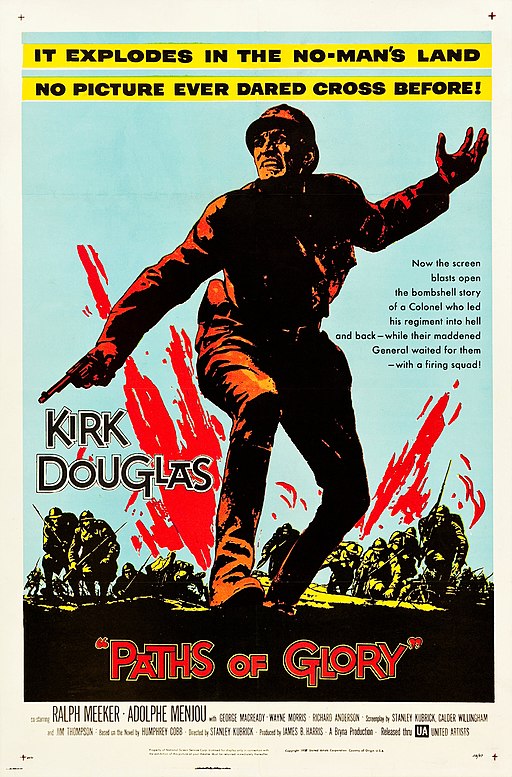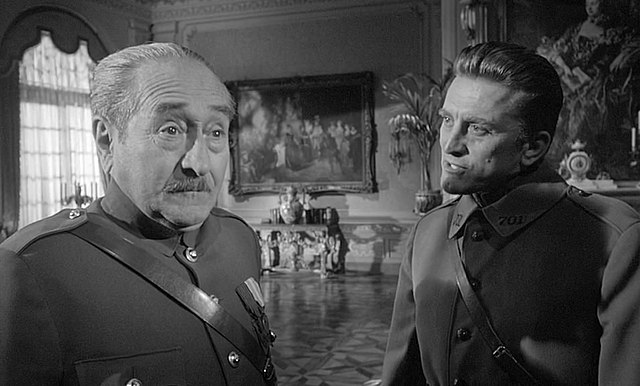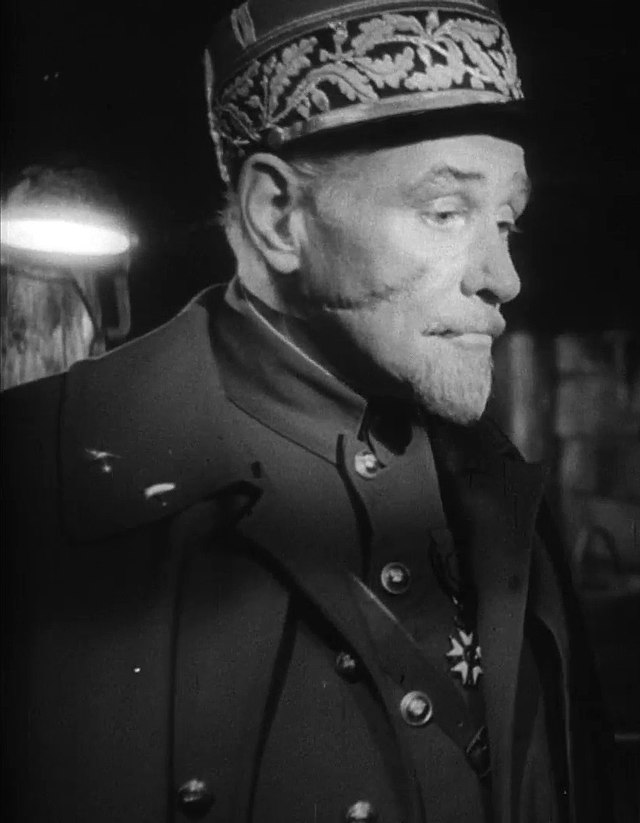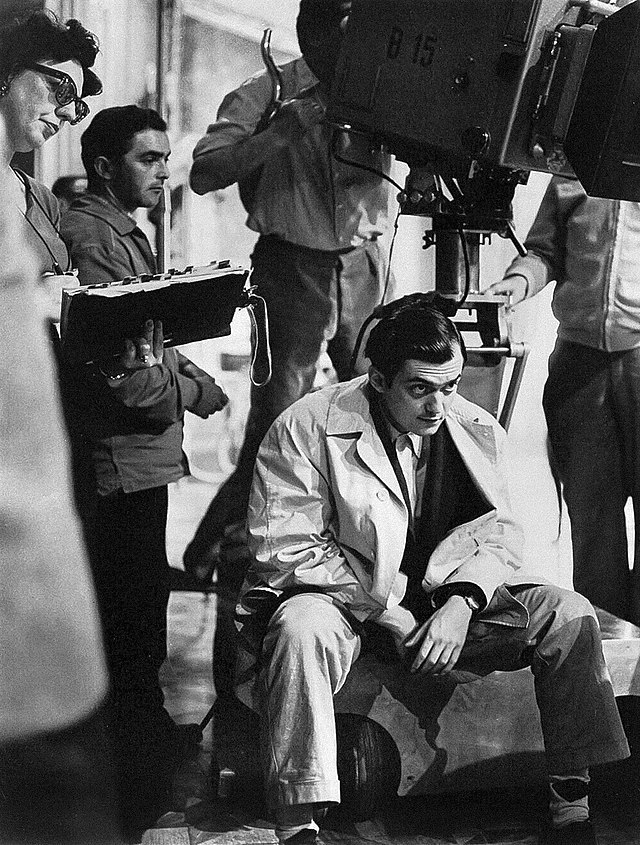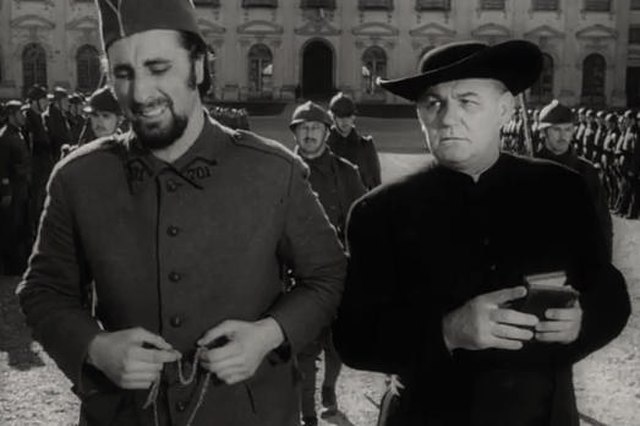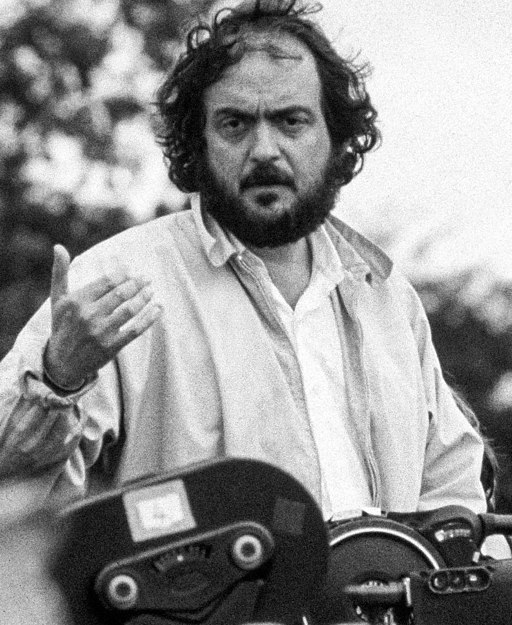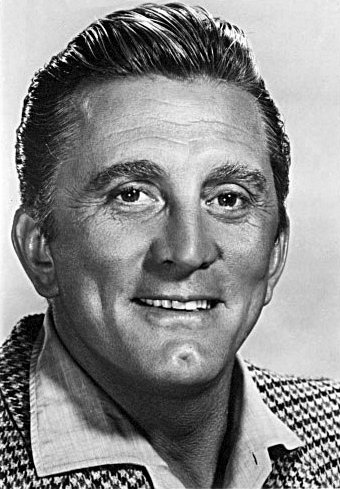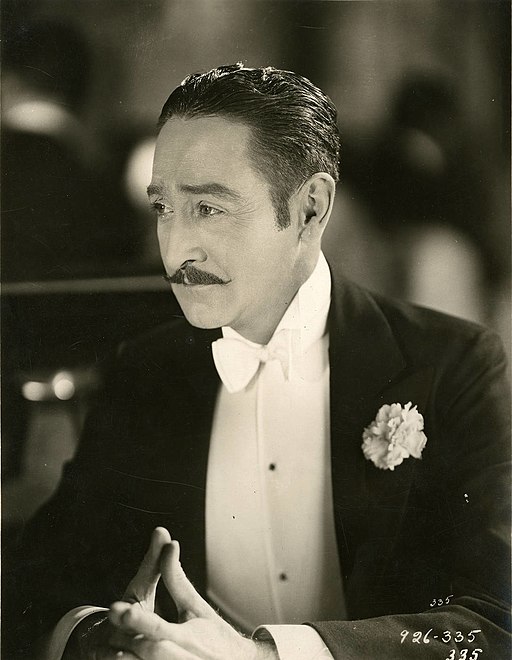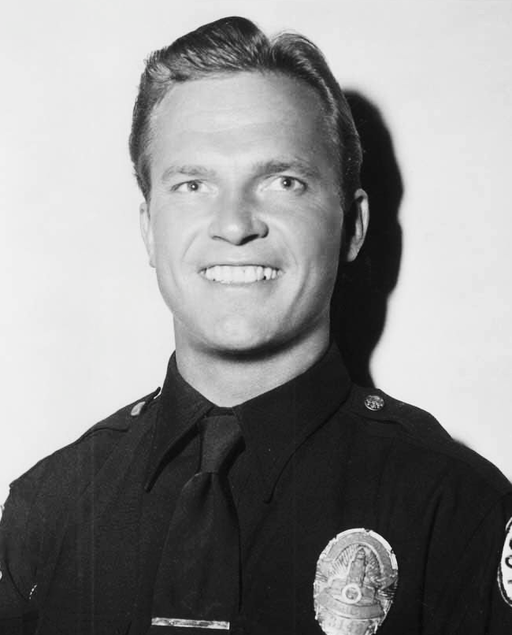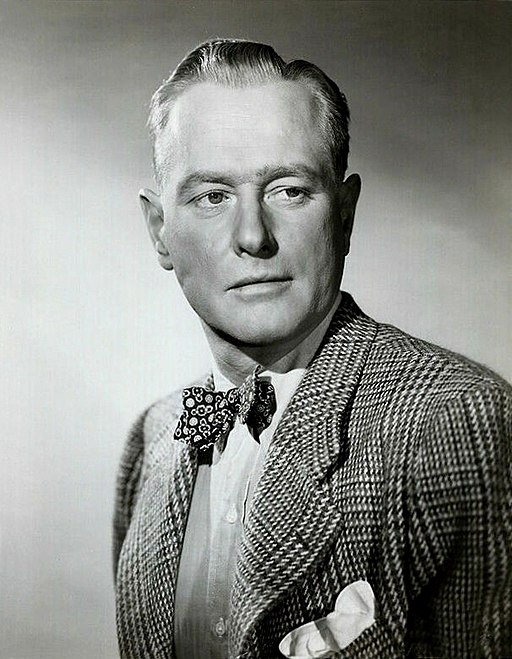Paths of Glory - 1957
back| Released by | United Artists |
| Director | Stanley Kubrick |
| Producer | James B. Harris |
| Script | Stanley Kubrick - Calder Willingham - Jim Thompson - Based on the novel by Humphrey Cobb |
| Cinematography | Georg Krause |
| Music by | Gerald Fried |
| Running time | 88 minutes |
| Film budget | $935,000 |
| Box office sales | $1 million |
| Main cast | Kirk Douglas - Ralph Meeker - Adolphe Menjou - George Macready - Wayne Morris |
Paths of Glory
A Powerful Anti-War Indictment Showcasing the Futility of War
"Paths of Glory" (1957), directed by Stanley Kubrick, is a powerful anti-war film set during World War I. The story follows Colonel Dax (Kirk Douglas), who defends three soldiers unjustly court-martialed for cowardice after a failed assault on a German stronghold.
The film highlights the brutality and futility of war and the corrupt, indifferent military leadership. Notable for its stark black-and-white cinematography and intense performances, especially by Douglas, the film critiques the dehumanizing effects of war and the moral failures of those in power.
Related
Paths of Glory – 1957
Summary:
"Paths of Glory," directed by Stanley Kubrick, is a poignant anti-war film set during World War I, focusing on the brutality and futility of war, and the corruption and callousness of military leadership.
The film begins with General Paul Mireau (George Macready) being ordered by his superior, General George Broulard (Adolphe Menjou), to lead an assault on a heavily fortified German position known as the "Anthill." Despite recognizing the near-impossible odds, Mireau, driven by ambition and the lure of a promotion, accepts the order. He then visits the front lines to rally the troops, exuding confidence and demanding unwavering commitment to the cause.
Colonel Dax (Kirk Douglas), a former criminal defense lawyer and commander of the soldiers tasked with the attack, realizes the futility and high casualties that the mission will entail but is bound to follow orders. The assault on the Anthill predictably results in a devastating loss, with the soldiers unable to breach the German defenses. In the chaos, some soldiers refuse to leave their trenches, leading Mireau to furiously accuse the entire regiment of cowardice.
In a bid to save face and avoid blame for the failed attack, Mireau decides to court-martial three randomly selected soldiers: Corporal Philippe Paris (Ralph Meeker), Private Pierre Arnaud (Joe Turkel), and Private Maurice Ferol (Timothy Carey). These men are chosen to serve as scapegoats, with their execution intended to restore discipline and set an example for the rest of the troops.
Colonel Dax, appalled by this injustice, steps in to defend the men at their court-martial. He argues passionately, highlighting the absurdity of the charges and the impossibility of the mission they were ordered to undertake. Despite his compelling defense, the court is biased, and the verdict predetermined. The three men are found guilty and sentenced to death.
In the film's climactic scene, the soldiers are executed by firing squad, their deaths serving as a stark reminder of the human cost of war and the indifference of those in power. General Broulard, impressed by Dax's eloquence and moral conviction, offers him Mireau's position. However, Dax rejects the offer, disgusted by the corruption and self-interest of the military hierarchy.
The final scene shifts focus to a group of French soldiers enjoying a brief respite in a tavern. A captured German girl is brought in and forced to sing for them. As she sings a haunting, melancholic song, the soldiers, initially jeering, are moved to tears, reminded of their shared humanity and the senselessness of the conflict.
Analysis:
"Paths of Glory" is a powerful critique of war and the often arbitrary and cruel nature of military justice. Kubrick masterfully juxtaposes the grim realities of the front lines with the detached, bureaucratic nature of the military leadership. The film's stark black-and-white cinematography by Georg Krause underscores the bleakness of the soldiers' situation and the harshness of their environment.
Kirk Douglas delivers a compelling performance as Colonel Dax, embodying integrity and moral courage in the face of overwhelming adversity. His character serves as a counterpoint to the self-serving generals, highlighting the disparity between those who command and those who are commanded. The performances of Ralph Meeker, Joe Turkel, and Timothy Carey as the doomed soldiers evoke deep sympathy, emphasizing the human cost of war.
Kubrick's direction is meticulous, with carefully crafted scenes that build tension and underscore the absurdity of the military establishment. The courtroom scenes, in particular, are a masterclass in creating dramatic tension and highlighting institutional injustice.
The film's anti-war message is clear and unflinching. It criticizes not only the horrors of combat but also the dehumanizing effects of military bureaucracy and the moral compromises made by those in power. The use of the Anthill assault as a metaphor for futile military endeavors serves to question the very purpose of war and the sacrifices demanded of ordinary soldiers.
"Paths of Glory" remains a timeless and impactful film, resonating with audiences for its unvarnished depiction of war and its unwavering moral stance. It challenges viewers to reflect on the true cost of conflict and the ethical responsibilities of leadership, making it a profound and enduring piece of cinema.
Classic Trailer from Paths of Glory:
Full Cast of Paths of Glory:
· Kirk Douglas as Colonel Dax
· Ralph Meeker as Corporal Philippe Paris
· Adolphe Menjou as General George Broulard
· George Macready as General Paul Mireau
· Wayne Morris as Lieutenant Roget
· Richard Anderson as Major Saint-Auban
· Joe Turkel as Private Pierre Arnaud
· Timothy Carey as Private Maurice Ferol
· Bert Freed as Sergeant Boulanger
· Emile Meyer as Father Dupree
· Jerry Hausner as Proprietor of Cafe
· Peter Capell as Narrator / Old Soldier
· Kem Dibbs as Orderly (uncredited)
· John Stein as Captain Rousseau
· Harold Benedict as French Soldier (uncredited)
· Leon Briggs as French Soldier (uncredited)
· James B. Harris as German Singer (uncredited)
· Halder Hanson as Court-Martial Member (uncredited)
· Paul Bös as Court-Martial Member (uncredited)
· Herbert Ellis as Shell-Shocked Soldier (uncredited)
· Fred Bell as Court-Martial Member (uncredited)
· Kem Dibbs as Orderly (uncredited)
· Christiane Kubrick as German Singer (uncredited, listed as Susanne Christian)
Stanley Kubrick’s Direction:
Stanley Kubrick's direction in "Paths of Glory" is a masterful blend of visual storytelling, meticulous attention to detail, and a profound understanding of the thematic elements at play. This film is an early demonstration of his signature style, which would come to define his later works. Below are several key aspects of Kubrick's direction in this film:
Visual Style and Cinematography:
Kubrick’s visual style in "Paths of Glory" is stark and evocative, employing black-and-white cinematography to accentuate the bleakness and brutality of the war. The use of deep focus and long tracking shots in the trench scenes immerses the audience in the claustrophobic and perilous environment of the front lines. Georg Krause's cinematography under Kubrick's direction creates a contrast between the gritty reality of the battlefield and the opulent, detached world of the military leadership.
Kubrick's use of tracking shots is particularly notable. The long, continuous shots of Colonel Dax walking through the trenches not only showcase the harrowing conditions faced by the soldiers but also serve to heighten the tension and anticipation. This technique immerses the audience in the environment, making them feel as if they are walking alongside Dax.
Thematic Depth:
Kubrick’s direction emphasizes the film's anti-war themes and the moral complexities of leadership and duty. He portrays the upper echelons of the military as being driven by ambition and self-interest, often at the expense of the soldiers’ lives. The film's critical view of authority and the dehumanizing effects of war are conveyed through sharp contrasts in setting and tone. The grandeur of the chateau where the generals plan their strategies starkly contrasts with the muddy, blood-soaked trenches where soldiers face imminent death.
Character Development and Performances:
Kubrick's direction elicits powerful performances from the cast, particularly Kirk Douglas as Colonel Dax. Douglas’s portrayal of Dax as a principled and empathetic leader provides a moral center to the film. Kubrick allows his actors space to develop their characters fully, resulting in nuanced and compelling performances. The courtroom scenes are particularly effective, with Kubrick’s direction emphasizing the procedural coldness and the predetermined nature of the trial. The actors' performances in these scenes underscore the film’s critique of military justice and the arbitrary use of power.
Pacing and Structure:
Kubrick demonstrates a keen sense of pacing, balancing moments of intense action with scenes of quiet, contemplative dialogue. The structure of the film builds steadily towards the climactic courtroom drama and the subsequent execution scene. Kubrick’s deliberate pacing allows the audience to absorb the gravity of the situation and the moral implications of the characters’ actions.
Symbolism and Allegory:
Kubrick employs symbolism throughout the film to reinforce its themes. The assault on the Anthill serves as a metaphor for the futile and destructive nature of war. The title "Paths of Glory" itself is ironic, referencing the false promise of honor and glory that war ostensibly offers. The final scene, where a captured German girl sings to the French soldiers, symbolizes a moment of shared humanity and fleeting peace amidst the chaos of war. This scene is a poignant reminder of the common bonds that exist even between enemies, highlighting the senselessness of their suffering.
Moral and Ethical Questions:
Kubrick’s direction raises significant moral and ethical questions about leadership, duty, and justice. The film does not offer easy answers but instead invites the audience to grapple with the complexities of the issues presented. By focusing on the individual stories of the soldiers and their experiences, Kubrick humanizes the broader political and military machinations, making the audience consider the true cost of war.
In conclusion, Stanley Kubrick’s direction in "Paths of Glory" is a masterclass in filmmaking. He combines a powerful visual style with deep thematic exploration and strong character development to create a film that is both a compelling narrative and a profound critique of war. Kubrick’s meticulous attention to detail and his ability to evoke powerful performances from his actors result in a film that is emotionally resonant and intellectually stimulating, solidifying his reputation as one of the great directors in cinema history.
Analysis of Kirk Douglas’ Performance:
Kirk Douglas's performance as Colonel Dax in "Paths of Glory" is a cornerstone of the film's emotional and moral impact. His portrayal is marked by a combination of intense conviction, moral integrity, and deep empathy, which brings a humanizing presence to the bleak and often brutal narrative.
Moral Conviction and Integrity:
Douglas infuses Colonel Dax with a sense of unwavering moral conviction. From the moment Dax is introduced, it is clear that he is a leader who values the lives of his men and stands firmly against the injustices perpetrated by the military hierarchy. Douglas's performance is grounded in a deep sense of integrity; his portrayal of Dax as a principled leader who fights against the corrupt and self-serving decisions of his superiors is compelling and believable.
One of the most powerful aspects of Douglas's performance is his ability to convey righteous indignation. In scenes where Dax confronts General Mireau (George Macready) and General Broulard (Adolphe Menjou), Douglas delivers his lines with a fiery intensity that underscores his character's deep sense of justice and frustration with the systemic corruption.
Empathy and Humanity:
Douglas's portrayal of Dax is also marked by a profound empathy for his men. This is evident in the scenes leading up to and following the doomed assault on the Anthill. Douglas captures the internal struggle of a leader who is fully aware of the suicidal nature of the mission yet feels powerless to change its course. His interactions with his soldiers are characterized by genuine concern and compassion, which contrast sharply with the detached and callous attitudes of the higher-ranking officers.
In the courtroom scenes, Douglas's performance is particularly poignant. As he defends the three scapegoated soldiers—Corporal Philippe Paris (Ralph Meeker), Private Pierre Arnaud (Joe Turkel), and Private Maurice Ferol (Timothy Carey)—Douglas imbues Dax with a combination of legal acumen and heartfelt passion. His impassioned speeches are delivered with a controlled yet fervent energy, highlighting his character's determination to seek justice even in the face of inevitable defeat.
Physical Presence and Command:
Douglas’s physical presence in the film is commanding and authoritative. His tall, athletic build and strong, expressive features lend a sense of gravitas to his role. Kubrick often frames Douglas in medium to close-up shots during pivotal moments, allowing the audience to witness the intensity of his expressions and the conviction in his eyes. This technique amplifies the emotional impact of Douglas's performance, drawing the audience into Dax's perspective.
In action scenes, such as the assault on the Anthill, Douglas conveys a mix of bravery and desperation. His movements are purposeful and determined, even as the chaos of battle unfolds around him. This physicality reinforces Dax's role as a leader who is willing to share the dangers faced by his men, further endearing him to the audience.
Subtlety and Nuance:
Douglas also excels in the more subtle aspects of his performance. His ability to convey complex emotions through minimal dialogue is evident in several key scenes. For instance, in moments of quiet reflection, such as when Dax contemplates the impending execution of his men, Douglas’s facial expressions and body language communicate a profound sense of sorrow and inner conflict. These nuanced performances add depth to his character, making Dax a multifaceted and relatable figure.
The Final Scene:
One of the most memorable moments of Douglas's performance occurs in the final scene of the film. As Dax listens to the captured German girl sing and observes his men, he exhibits a range of emotions—from initial indifference to deep emotional engagement. Douglas’s ability to convey this transformation with subtle shifts in expression and posture is a testament to his skill as an actor. The tear in his eye as he watches the soldiers join in the singing, moved by a shared sense of humanity, encapsulates the film’s anti-war message and the tragedy of the characters’ experiences.
In conclusion, Kirk Douglas's performance in "Paths of Glory" is a tour de force that anchors the film’s emotional and ethical core. Through his portrayal of Colonel Dax, Douglas brings to life a character who embodies moral courage, empathy, and a steadfast commitment to justice. His powerful and nuanced performance elevates the film, making it not only a gripping war drama but also a profound commentary on the human condition.
Notable Quotes from the Movie:
· Colonel Dax: "There are times when I'm ashamed to be a member of the human race and this is one such occasion."
· General Mireau: "If those little sweethearts won't face German bullets, they'll face French ones!"
· Colonel Dax: "I apologize for not being entirely honest with you. I apologize for not revealing my true feelings. I apologize, sir, for not telling you sooner that you're a degenerate, sadistic old man and you can go to hell before I apologize to you now or ever again!"
· General Broulard: "Patriotism is the last refuge of a scoundrel."
· Colonel Dax: "I see that Mireau is wearing his usual look of anticipation mixed with confidence and a kind of grisly satisfaction."
· General Mireau: "They're scum, Colonel. Scum. And do you know how they prove it? They defeat the very purpose of this court by their utter devotion to duty."
· Colonel Dax: "Gentlemen of the court, there are times that I'm ashamed to be a member of the human race, and this is one such occasion."
· General Broulard: "You see, Colonel Dax, troops are like children. Just as a child wants his father to be firm, troops crave discipline. They need to know that the punishment will fit the crime."
· Corporal Philippe Paris: "See that cockroach? Tomorrow morning, we'll be dead and it'll be alive. It'll have more contact with my wife and child than I will. I'll be nothing and it’ll be alive."
· Colonel Dax: "The men died wonderfully! There's always that, always that, always that."
Classical Scenes from “Paths of Glory”:
The Assault on the Anthill:
One of the most iconic scenes in "Paths of Glory" is the assault on the Anthill. This scene showcases Stanley Kubrick's masterful use of tracking shots as Colonel Dax (Kirk Douglas) leads his men through the trenches and into no man's land. The camera follows Dax closely, capturing the chaos, fear, and brutality of the battlefield. Explosions, gunfire, and the cries of soldiers create a visceral and immersive experience. The scene's stark realism and unflinching portrayal of combat highlight the futility and horror of war.
The Court-Martial:
The courtroom scenes are pivotal in the film, highlighting the themes of injustice and the corruption of military hierarchy. Colonel Dax defends Corporal Philippe Paris (Ralph Meeker), Private Pierre Arnaud (Joe Turkel), and Private Maurice Ferol (Timothy Carey) against charges of cowardice. Kubrick's direction emphasizes the cold, bureaucratic nature of the proceedings, with the soldiers' fate seemingly predetermined. Dax's impassioned defense, delivered with intensity and conviction by Douglas, contrasts sharply with the detached and biased attitudes of the court officers. This scene underscores the moral complexity and ethical questions central to the film.
General Mireau's Inspection:
In this scene, General Mireau (George Macready) inspects the front-line trenches, attempting to boost morale among the soldiers. His interactions with the men are marked by a chilling detachment and a lack of empathy. Mireau's infamous line, "If those little sweethearts won't face German bullets, they'll face French ones!" exemplifies his ruthless attitude. The scene effectively illustrates the disconnect between the high-ranking officers and the soldiers on the ground, emphasizing the callousness of military leadership.
The Execution:
The execution of the three scapegoated soldiers is one of the most harrowing scenes in the film. The tension builds as the soldiers are led to the firing squad, each reacting differently to their impending death. The stark, clinical manner in which the execution is carried out underscores the inhumanity and injustice of the act. Kubrick's direction focuses on the soldiers' faces, capturing their fear, resignation, and dignity in their final moments. The scene is a powerful indictment of the arbitrary and brutal nature of military justice.
The Final Scene (The Singing German Girl):
The film's final scene takes place in a tavern where French soldiers, momentarily off duty, force a captured German girl (played by Christiane Kubrick, credited as Susanne Christian) to sing. Initially, the soldiers jeer and mock her, but as she sings a haunting, melancholic song, they are gradually moved to tears. The song evokes memories of home, love, and lost humanity, creating a poignant and emotional climax. Colonel Dax observes this transformation, realizing the profound impact of the shared human experience. This scene encapsulates the film's anti-war message and the futility of conflict, leaving a lasting impression on the audience.
Analysis of Classic Scenes:
Assault on the Anthill:
- Visual Mastery: Kubrick’s use of tracking shots and deep focus immerses the viewer in the chaos of battle.
- Emotional Impact: The scene viscerally portrays the fear and desperation of the soldiers, emphasizing the senseless sacrifice.
The Court-Martial:
- Dramatic Tension: The courtroom scenes are charged with dramatic tension, highlighting the arbitrary nature of military justice.
- Moral Complexity: Douglas’s performance as Dax brings out the ethical dilemmas and the struggle for justice against a biased system.
General Mireau's Inspection:
- Character Contrast: The scene starkly contrasts the callousness of Mireau with the suffering of the soldiers, emphasizing the theme of disconnected leadership.
- Symbolic Dialogue: Mireau’s dialogue underscores the dehumanizing effect of military hierarchy and ambition.
The Execution:
- Emotional Gravitas: The execution scene is a poignant and tragic moment, emphasizing the ultimate cost of war.
- Humanization: Kubrick’s focus on the soldiers’ faces humanizes them, making their deaths all the more impactful.
The Final Scene:
- Shared Humanity: The soldiers’ reaction to the German girl’s song highlights the common humanity that transcends national boundaries.
- Anti-War Message: The scene serves as a powerful reminder of the futility and tragedy of war, encapsulating the film’s central theme.
Awards and Recognition:
"Paths of Glory" is widely regarded as a classic anti-war film and has received critical acclaim over the years. However, during its initial release, it did not receive a significant number of awards.
Awards:
- Jussi Awards (1959)
- Best Foreign Director: Stanley Kubrick (Won)
- Bodil Awards (1958)
- Best American Film: (Won)
- FIPRESCI Prize (1958)
- Best Director: Stanley Kubrick (Won)
Nominations:
- BAFTA Awards (1958)
- Best Film from any Source: (Nominated)

